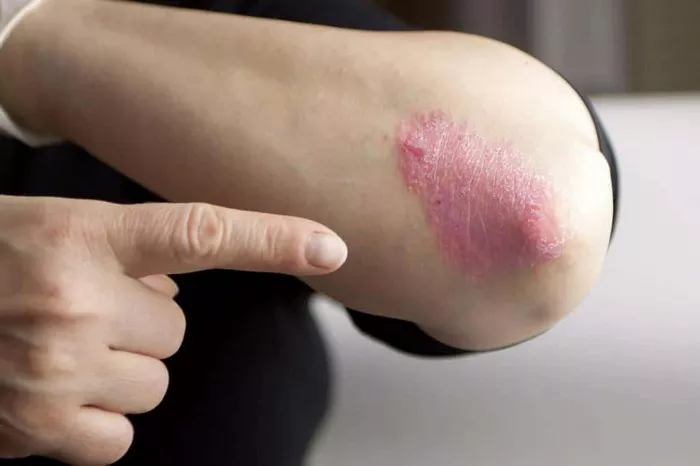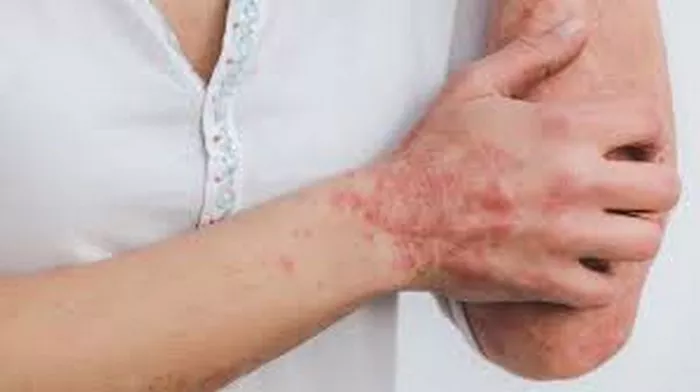Psoriasis is a chronic autoimmune condition characterized by the rapid buildup of skin cells, leading to the formation of thick, scaly patches on the skin’s surface. Among the various forms of psoriasis, plaque psoriasis is the most common type, accounting for about 80% of cases. Acute plaque psoriasis represents a more severe and sudden manifestation of this condition, often requiring immediate medical attention and intervention.
What is Acute Plaque Psoriasis?
Acute plaque psoriasis is an intense and rapidly progressing form of plaque psoriasis, distinguished by the sudden onset of severe symptoms and widespread skin involvement. In this acute phase, individuals experience an aggressive flare-up of symptoms that can significantly impact their quality of life and necessitate prompt medical management.
The hallmark of acute plaque psoriasis is the development of thick, raised, red patches of skin covered with silvery-white scales, known as plaques. These plaques can appear anywhere on the body but are commonly found on the elbows, knees, scalp, and lower back. Unlike the more typical chronic course of plaque psoriasis, acute episodes are characterized by a sudden and intense inflammatory response within the skin.
Symptoms of Acute Plaque Psoriasis
The symptoms of acute plaque psoriasis can be distressing and often appear suddenly. Common signs and symptoms include:
- Thickened Skin Patches: Raised, inflamed patches of skin covered with silvery-white scales (plaques).
- Redness and Inflammation: The affected areas appear red and may be accompanied by itching or pain.
- Rapid Spread: Unlike chronic plaque psoriasis, acute episodes can rapidly spread across large areas of the body.
- Dry, Cracked Skin: The skin may become dry, cracked, and prone to bleeding.
- Discomfort and Pain: In severe cases, acute plaque psoriasis can be painful and interfere with daily activities.
Causes and Triggers
The exact cause of acute plaque psoriasis is not fully understood, but it is believed to result from a combination of genetic, immune-related, and environmental factors. In individuals with psoriasis, the immune system mistakenly targets healthy skin cells, accelerating their growth cycle. This abnormal immune response leads to the formation of plaques on the skin.
Several factors can trigger or exacerbate acute episodes of plaque psoriasis, including:
- Stress: Emotional stress or trauma can trigger flare-ups.
- Infections: Bacterial or viral infections, such as streptococcal throat infections, can provoke psoriasis.
- Medications: Certain medications, including lithium, antimalarials, and beta-blockers, can worsen psoriasis symptoms.
- Climate: Cold, dry weather can aggravate the condition.
- Skin Injuries: Scratches, sunburns, or other skin traumas can trigger psoriasis lesions.
Diagnosis
Diagnosing acute plaque psoriasis typically involves a comprehensive evaluation by a dermatologist or healthcare provider. The diagnosis is usually based on a physical examination of the skin, medical history, and assessment of symptoms. In some cases, a skin biopsy may be performed to rule out other skin conditions and confirm the diagnosis of psoriasis.
Treatment Options
Treatment strategies for acute plaque psoriasis aim to alleviate symptoms, reduce inflammation, and slow down the excessive skin cell growth. The choice of treatment depends on the severity of the condition and may include:
1. Topical Treatments: Corticosteroid creams, vitamin D analogs, and retinoids can be applied directly to the affected skin to reduce inflammation and scaling.
2. Phototherapy (Light Therapy): Exposure to ultraviolet (UV) light can help slow skin cell growth and reduce inflammation. Different types of phototherapy, such as UVB or PUVA (psoralen plus UVA), may be used.
3. Systemic Medications: For severe cases of acute plaque psoriasis, oral or injectable medications that target the immune system (such as methotrexate, cyclosporine, or biologics) may be prescribed.
4. Lifestyle Modifications: Managing stress, maintaining a healthy weight, avoiding alcohol and smoking, and moisturizing the skin regularly can help reduce flare-ups and improve overall skin health.
Prognosis and Outlook
The prognosis for acute plaque psoriasis varies depending on the individual’s overall health, the severity of the condition, and the effectiveness of treatment. With appropriate medical care and lifestyle modifications, many individuals with acute plaque psoriasis can achieve significant symptom relief and prolonged periods of remission.
However, psoriasis is a chronic condition, and flare-ups can recur unpredictably. Close monitoring by a dermatologist or healthcare provider is essential for managing symptoms effectively and adjusting treatment as needed.
Coping with Acute Plaque Psoriasis
Living with acute plaque psoriasis can be challenging, both physically and emotionally. It is essential for individuals with psoriasis to seek support and education about their condition. Connecting with patient advocacy groups and healthcare professionals can provide valuable resources and guidance for managing symptoms and coping with the impact of psoriasis on daily life.
Additionally, practicing self-care techniques such as mindfulness, stress reduction, and maintaining a healthy lifestyle can complement medical treatment and promote overall well-being.
Conclusion
Acute plaque psoriasis represents a severe and intense form of psoriasis, characterized by sudden and widespread flare-ups of symptoms. While this condition can significantly impact a person’s quality of life, effective treatment options are available to manage symptoms and improve skin health.
If you suspect you have acute plaque psoriasis or are experiencing a sudden exacerbation of psoriasis symptoms, consult with a dermatologist or healthcare provider promptly. Early diagnosis and intervention can help alleviate discomfort, prevent complications, and empower individuals to manage their condition effectively for long-term skin health and well-being.
Related Topics:

























